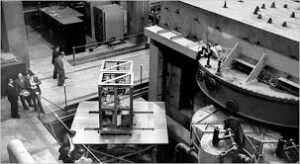History is filled with remarkable events and figures that have profoundly shaped the world as we know it. Some historical facts are so astonishing that they seem almost too incredible to be true. These unbelievable facts not only provide fascinating insights into the past but also highlight how seemingly small or unexpected events have had significant global impacts. This article explores several of these extraordinary historical facts and their lasting effects on the world.
1. The Great Emu War: An Unconventional Battle in Australia

In 1932, Australia faced an unexpected adversary: emus. After World War I, soldiers were given land to farm in Western Australia. However, they soon encountered a massive influx of emus, which destroyed crops and damaged fences. In response, the government launched the Great Emu War, deploying soldiers armed with machine guns to combat the birds. Despite their efforts, the emus proved remarkably resilient, and the campaign was ultimately deemed a failure.
- Unbelievable Fact: The Great Emu War highlights the challenges of wildlife management and the surprising resilience of nature. The emus continued to thrive, and the war remains a curious chapter in Australian history.
2. The Library of Alexandria: The Ancient World’s Knowledge Hub
The Library of Alexandria, founded in the 3rd century BCE, was one of the most significant libraries of the ancient world. Located in Alexandria, Egypt, it housed hundreds of thousands of scrolls and manuscripts, making it a center of knowledge and learning. Tragically, the library was destroyed in a series of events over several centuries, including fires and warfare. The loss of the Library of Alexandria represents one of history’s greatest cultural tragedies, as much of the ancient world’s knowledge was lost.
- Unbelievable Fact: The Library of Alexandria was not just a library but a research institution that attracted scholars from across the ancient world, contributing to significant advancements in science, mathematics, and literature.
3. The Tunguska Event: A Mysterious Explosion in Siberia
On June 30, 1908, an enormous explosion occurred over the Tunguska River in Siberia, flattening approximately 2,000 square kilometers of forest. The explosion, estimated to be equivalent to 10-15 megatons of TNT, was caused by the airburst of a meteoroid or comet. Despite the massive explosion, no impact crater was found, and the event remained shrouded in mystery for decades.
- Unbelievable Fact: The Tunguska event is one of the most powerful explosions in recorded history that occurred over land without leaving an impact crater. It underscores the potential dangers of cosmic objects and their impact on Earth.
4. The Invention of the Internet: A Revolution in Communication
The invention of the Internet in the late 20th century transformed the world in unprecedented ways. Originally developed by DARPA (the Defense Advanced Research Projects Agency) in the 1960s as ARPANET, the Internet evolved from a military communication network into a global platform connecting billions of people. The Internet revolutionized how we access information, communicate, and conduct business.
- Unbelievable Fact: The Internet’s development was driven by the need for robust and decentralized communication during the Cold War. Today, it has become an integral part of daily life, affecting nearly every aspect of modern society.
5. The Manhattan Project: The Secret Development of the Atomic Bomb

During World War II, the Manhattan Project was a secret U.S. government project aimed at developing the first nuclear weapons. Led by prominent scientists such as Robert Oppenheimer and Enrico Fermi, the project culminated in the successful test of the atomic bomb in 1945. The bombs were subsequently dropped on Hiroshima and Nagasaki, leading to the end of World War II and ushering in the atomic age.
- Unbelievable Fact: The Manhattan Project was one of the most secretive and ambitious scientific endeavors ever undertaken, involving thousands of scientists and engineers working in secrecy to develop weapons that would reshape global geopolitics.
6. The Fall of the Berlin Wall: A Symbol of the End of the Cold War
The Berlin Wall, erected in 1961, was a physical manifestation of the Cold War divide between East and West Germany. On November 9, 1989, the Wall fell, marking a pivotal moment in history. The fall of the Berlin Wall symbolized the end of the Cold War and led to the reunification of Germany, as well as significant shifts in global politics and economics.
- Unbelievable Fact: The fall of the Berlin Wall was not only a momentous political event but also a spontaneous occurrence, with thousands of East Germans rushing to cross the Wall once the border guards mistakenly allowed open passage.
7. The Discovery of King Tutankhamun’s Tomb: Unearthing Ancient Egypt
In 1922, British archaeologist Howard Carter discovered the nearly intact tomb of Pharaoh Tutankhamun in the Valley of the Kings. The discovery was one of the most significant archaeological finds of the 20th century, revealing a wealth of artifacts, including the famous golden death mask. The tomb’s preservation provided unprecedented insights into ancient Egyptian culture and burial practices.
- Unbelievable Fact: The discovery of Tutankhamun’s tomb sparked a worldwide fascination with ancient Egypt and led to the “Tutankhamun craze,” influencing art, fashion, and popular culture.
8. The Apollo 11 Moon Landing: Humanity’s Giant Leap
On July 20, 1969, NASA’s Apollo 11 mission achieved one of the greatest milestones in human history: landing the first humans on the Moon. Astronauts Neil Armstrong and Buzz Aldrin walked on the lunar surface, while Michael Collins orbited above. This achievement marked a significant technological and exploratory triumph, demonstrating human ingenuity and perseverance.
- Unbelievable Fact: The Apollo 11 mission required overcoming numerous technical challenges and uncertainties, and the Moon landing was broadcast live to millions around the world, marking a defining moment in space exploration.
9. The Salem Witch Trials: A Dark Episode of Mass Hysteria
In 1692, the Salem witch trials in colonial Massachusetts resulted in a series of hearings and prosecutions of people accused of witchcraft. The trials, driven by mass hysteria and religious fervor, led to the execution of 20 people and the imprisonment of many others. The Salem witch trials are a stark reminder of the dangers of superstition and the impact of collective fear on justice.
- Unbelievable Fact: The Salem witch trials were fueled by a combination of social, economic, and religious factors, and the events remain a powerful lesson in the consequences of mass hysteria and scapegoating.
10. The Codebreakers of Bletchley Park: Unveiling Secrets of WWII

During World War II, British codebreakers at Bletchley Park played a crucial role in deciphering the German Enigma code. Led by figures such as Alan Turing, the team’s work significantly contributed to the Allied victory by providing crucial intelligence on German military operations. The success of Bletchley Park’s codebreaking efforts is considered one of the war’s most important and secretive achievements.
- Unbelievable Fact: The work at Bletchley Park remained classified for many years, and the contributions of the codebreakers were only fully recognized long after the war, illustrating the often-hidden roles played by individuals in shaping history.
Conclusion
These unbelievable historical facts illustrate how remarkable and transformative events have shaped the world. From the Great Emu War’s unconventional battle to the groundbreaking achievements of the Manhattan Project and the Apollo 11 Moon landing, these events highlight the diverse ways in which history has unfolded. By understanding these extraordinary moments, we gain a deeper appreciation for the complexities and surprises of the past, enriching our understanding of how the world has come to be as it is today.

